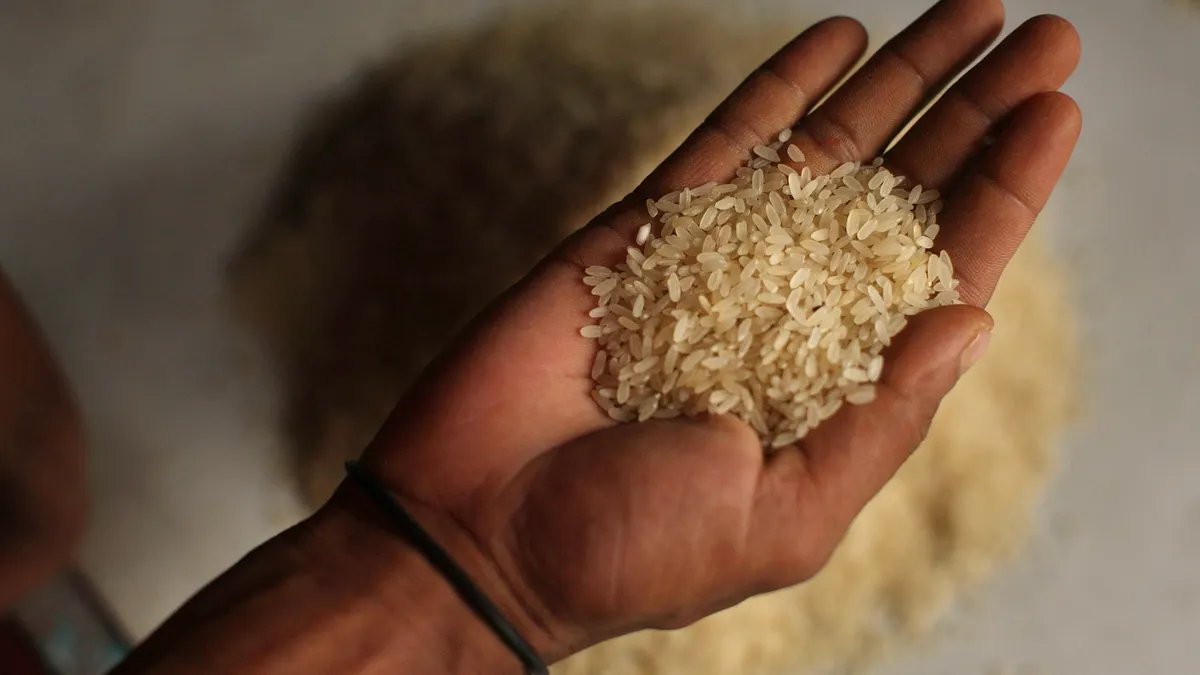Dive Brief:
- Kellogg is spending $2 million on a program called InGrained that will help farmers in the Lower Mississippi River Basin reduce their methane emissions. The company will pay producers $20 per ton of greenhouse gas they abate during a five-year period after introducing them to more environmentally friendly farming practices.
- The cereal giant said the rice sourced in this region is a key ingredient of its Rice Krispies and Special K cereals. Kellogg will provide producers with training in irrigation management, nutrient management and soil health, among other efforts, to support their transition to these practices.
- The company said InGrained will help its partners reduce up to 51,000 tons of greenhouse gasses from the North American rice ingredient supply chain in the next five years.
Dive Insight:
Kellogg and other food and beverage CPGs have been criticized by consumers and green groups for their impact on the environment, putting pressure on them to take steps to reduce it.
Rice, a common ingredient in cereal products and snack bars, is among several crops that have drawn criticism for their environmental impact. Global rice production is doing as much harm to the environment as 1,200 coal power stations, according to the Environmental Defense Fund. U.S. farmers are expected to plant and harvest about 2.5 million acres of rice during the 2021/22 crop year, USDA data showed.
Consumers are increasingly taking into account the environmental impact of their favorite brands and products. A 2021 survey from Simon-Kucher & Partners indicated 55% of U.S. consumers said they have made at least modest changes to become more sustainable.
As a result, CPGs are implementing practices throughout their supply chain, from growing the crop, processing it and shipping it to stores, that minimize their footprint. Nearly every company, from PepsiCo and Coca-Cola to Nestlé and Unilever, has put in place its new practices in recent years.
A key part of that strategy is working directly with farmers.
Nestlé, for example, said last month it will triple its cocoa sustainability funding to 1.3 billion Swiss francs ($1.4 billion) by 2030, using some of the money to provide financial incentives to cocoa-farming families in Africa who help prevent child labor and reduce their environmental footprint. And Anheuser-Busch, which uses barley, rice and hops for its beers, is working with researchers and farmers on delivering water closer to the plants. The process not only cuts back on the amount of liquid needed, but it reduces the risk of disease and curtails energy consumption.
The initiative announced by Kellogg is part of its Origins program that has worked with more than 440,000 farmers worldwide to implement practices such as farm productivity and regenerative agriculture, the company said.
Making rice more sustainable has attracted interest from various stakeholders over the years. The nonprofit organization Sustainable Rice Platform said it has worked for more than a decade to help over 420,000 rice farmers adopt more sustainable practices such as water and nutrient management. The group said these practices can cut methane emissions from flooded rice fields by up to 50% and increase the net incomes of farmers by as much as 20%. Nestlé and Mars are among the members of this group.
Other CPGs have made rice sustainability a key goal. Unilever’s Knorr brand announced last fall it would begin 50 different regenerative agriculture projects during the next five years. A key part of that initiative was preserving water and decreasing carbon emissions at its biggest rice supplier in Arkansas.
















